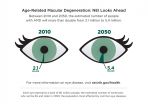(Press-News.org) Public Health England (PHE) recently endorsed the use of electronic cigarettes as an aid to quitting smoking. But in The BMJ this week, experts question the evidence on safety and effectiveness underpinning the recommendations.
Professor Martin McKee at the London School of Hygiene & Tropical Medicine and Professor Simon Capewell at the University of Liverpool, argue that the available evidence about e-cigarettes "suggests that the debate is far from over and questions remain about their benefits and harms."
The PHE report concludes that e-cigarettes are much safer than conventional cigarettes. It also says there is no evidence that e-cigarettes give children a "gateway" into smoking.
Some of the findings have been welcomed by Action on Smoking and Health (ASH) and the Royal College of Physicians of London. But other leading health bodies - including the British Medical Association, the US Centers for Disease Control and Prevention, and the World Health Organization - have expressed caution.
So does the available evidence show clearly that e-cigarettes are as effective as established quitting aids, ask McKee and Capewell.
Unfortunately not. For example, a recent Cochrane review, widely cited in the PHE report, concluded the available evidence was of "low or very low quality" by recognised standards.
And a recent systematic review, which the PHE report surprisingly fails to cite, also found serious methodological problems in many of the studies it reviewed, and noted that one third of the studies (34%) it reviewed were published by authors with conflicts of interest.
The headline message from the PHE report is that "best estimates show e-cigarettes are 95% less harmful to your health than normal cigarettes." Yet McKee and Capewell point out that this figure comes from a single meeting of 12 people, involving several known e-cigarette champions and sponsored by companies with links to the tobacco industry.
The PHE report also asserts that the available evidence suggests that e-cigarettes are not currently re-normalising smoking among children and young people in the UK. But McKee and Capewell point out that experimentation with e-cigarettes among young people in England is "worryingly high" and "this remains a major concern for health professionals and parents."
They describe the report's dismissal of the possibility that e-cigarettes may be a gateway to smoking as "premature." And they argue that the report has many other omissions, such as concerns about product safety, and the lack of evidence of risks from long term dual use with conventional cigarettes.
Finally, the PHE summary states, "The accuracy of nicotine content labelling currently raises no major concerns." Surely, England's leading public health agency cannot be indifferent to a situation in which consumer product information is known to be wildly inaccurate, they ask.
In 2017, the European Union Tobacco Products Directive will come into force, with substantial restrictions on e-cigarettes. "These restrictions will hopefully limit the negative effect of this flawed PHE report," say The BMJ article's authors.
"Meanwhile, directors of public health and the wider community desperately need advice on e-cigarettes that is evidence based and free from any suspicion of influence by vested interests," they conclude.
INFORMATION:
The reason why middle class people are more likely to play music, paint and act has been revealed in a major new study.
Research involving 78,000 people found that it was not wealth or social status that were strongly linked to people taking part in arts activities as amateurs or professionals.
Instead, it was the level of education that lay behind arts participation, the study by Dr Aaron Reeves, a sociologist at the University of Oxford, found.
In an article in the journal Sociology, Dr Reeves said that of the 78,011 surveyed, 18% had taken part in painting or ...
A study of 6467 children from England--presented at this year's annual meeting of the European Association for the Study of Diabetes (EASD) in Stockholm--shows that no access to a garden at age 3-5 years is linked to an increased risk developing obesity by age 7 years. The research is by Annemarie Schalkwijk, VU University Medical Centre, Amsterdam, the Netherlands, and colleagues.
Overweight and obese children are at increased risk of becoming overweight and obese adults and therefore being overweight or obese in childhood is an important risk factor for developing ...
A meta-analysis of 21 studies presented at this year's annual meeting the European Association for the Study of Diabetes (EASD) shows that exposure to pesticides is associated with increased risk of developing diabetes by 61%, with different types of pesticides showing varying levels of risk. The study is by Giorgos Ntritsos, University of Ioannina, Greece, and Dr Ioanna Tzoulaki and Dr Evangelos Evangelou, Imperial College London, UK, and colleagues.
How diabetes develops is considered to be an interplay between genetic and environmental factors. Emerging evidence suggests ...
New research presented at this year's annual meeting of the European Association for the Study of Diabetes in Stockholm shows that a 10-times increased exposure to organic pollutants in early pregnancy is associated with a 4.4 times increased risk of a pregnant woman developing gestational diabetes. The research is by Assistant Professor Leda Chatzi, University of Crete, Heraklion, Greece.
Persistent Organic Pollutants (POPs) are a group of diverse substances, including polychlorinated biphenyls (PCBs) and organochlorine pesticides that are resistant to biodegradation ...
On Sept. 13, 2015, the Solar and Heliospheric Observatory -- a joint project of the European Space Agency and NASA -- discovered its 3,000th comet, cementing its standing as the greatest comet finder of all time. Prior to the 1995 launch of the observatory, commonly known as SOHO, only a dozen or so comets had ever even been discovered from space, while some 900 had been discovered from the ground.
The 3,000th comet was originally spotted in the data by Worachate Boonplod, of Samut Songkhram, Thailand.
"I am very happy to be part of a great milestone for SOHO's comet ...
UNIVERSITY PARK, Pa. -- Asking just two questions may be able to help nurses and doctors quickly and easily identify delirium in hospitalized older adults, according to health researchers.
Delirium is a reversible cognitive condition that can be resolved if caught and treated early.
"Delirium can be very costly and deadly -- and with high-risk patients, time matters," said Donna M. Fick, Distinguished Professor of Nursing and co-director of the Hartford Center of Geriatric Nursing Excellence at Penn State. "Our ultra-brief two-item bedside test for delirium takes an ...
According to a NASA analysis of satellite data, the 2015 Arctic sea ice minimum extent is the fourth lowest on record since observations from space began.
The analysis by NASA and the NASA-supported National Snow and Ice Data Center (NSIDC) at the University of Colorado at Boulder showed the annual minimum extent was 1.70 million square miles (4.41 million square kilometers) on Sept. 11. This year's minimum is 699,000 square miles (1.81 million square kilometers) lower than the 1981-2010 average.
Arctic sea ice cover, made of frozen seawater that floats on top of the ...
Earth's gravity has influenced the orientation of thousands of faults that form in the lunar surface as the moon shrinks, according to new results from NASA's Lunar Reconnaissance Orbiter (LRO) spacecraft.
In August, 2010, researchers using images from LRO's Narrow Angle Camera (NAC) reported the discovery of 14 cliffs known as "lobate scarps" on the moon's surface, in addition to about 70 previously known from the limited high-resolution Apollo Panoramic Camera photographs. Due largely to their random distribution across the surface, the science team concluded that the ...
People with a genetic predisposition for age-related macular degeneration (AMD) significantly increased their odds of developing the blinding eye disorder if they had a history of heavy smoking and consistently did not exercise or eat enough fruits and vegetables, according to an observational study of women funded by the National Eye Institute, part of the National Institutes of Health.
Eating a healthy diet and getting exercise have been shown in earlier studies to protect against AMD, a leading cause of vision loss among people age 50 and older. Findings from this ...
A new computational model developed by scientists from the University of Chicago could help improve the allocation of U.S. biomedical research resources. The tool, called the Research Opportunity Index (ROI), measures disparities between resources dedicated to a disease and its relative burden on society. ROI identifies diseases that receive a disproportionate share of biomedical resources, which represent opportunities for high-impact investment or for the realignment of existing resources. It is designed to provide an unbiased, data-driven framework to help scientific ...



